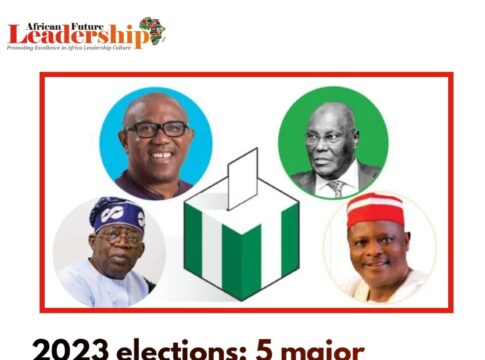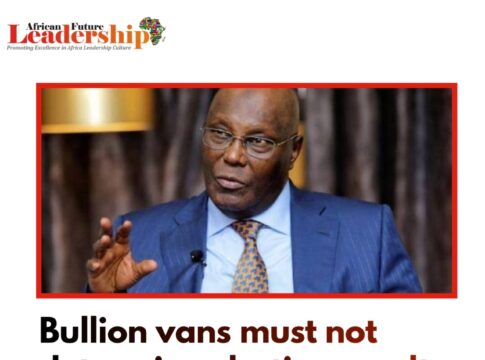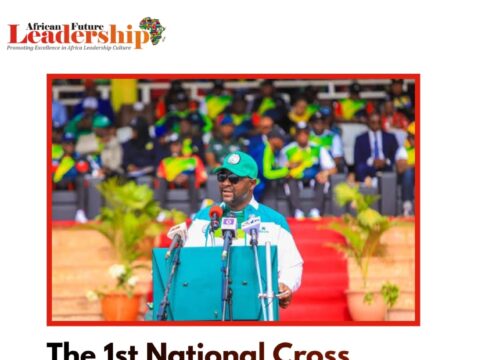Nigerians will soon decide who will be their president in the general election. The election is scheduled for the end of February and the inauguration is May 29, 2023.
As Nigerians count down to the Election Day, it is worth considering the major challenges the country’s next president will face in his presidency.
The challenges revolve around five critical areas:
- National cohesion
- Security
- The economy
- The university system
- The fight against corruption.
It’s a lot to ask, but the challenges are surmountable if the president has the will and commitment to the ideal of democratic governance.
The big threats
Fractured polity: Nigeria is more divided and polarized than it’s ever been. The cleavages and fault-lines of ethnocentrism, sectarianism, sectionalism, parochialism and religious extremism are pushing the country to the brink.
The polarization is evident in conversations around the de facto rotational presidency, the controversy over presidential candidates and religious faith, the neo-Biafra separatist agitations in the south-east, and the toxic and bigoted ethnocentric rhetoric peddled in the mainstream and social media.
The next president must undertake urgent measures at national reconciliation and integration to avert impending chaos.
Collapsing national security: The prevailing state of national security in Nigeria is apocalyptic. The receding Boko Haram insurgency in the north-east is being substituted by a nexus of banditry and terrorism in the north-west.
The north-central is still grappling with the deadly farmer-herder crisis. For its part the south-east is enmeshed in separatist violence and the associated criminal opportunism.
There is an upswing in gang and ritual brigandage in the south-west while south-south is still afflicted with militancy, piracy and oil theft.
The next president must get a grip on these dire security threats.
Battered economy: Nigeria is battling with slow economic growth. The national currency (naira) has been grossly devalued amid a volatile exchange rate. Inflation and unemployment rates are high and rising.
Rises in the cost of living are unprecedented and unbearable. The government seems to have lost traction on national economic planning and management. The next president has the challenge of revamping an ailing and critically dysfunctional economy.
Restive university sector: Nigeria’s university system is witnessing a systematic deterioration as a result of government neglect.
In 2022 public universities in the country lost nearly a year due to an industrial dispute between the federal government and the various university unions over issues relating to funding, governance and workers’ welfare. The crux of the dispute was government’s failure to honour a series of agreements it signed with the unions.
In an effort to break the continuing strike of the academic staff union in late 2022, the federal government secured a court order compelling the lecturers to go back to work. But the conditions and issues that warranted the strike have barely been addressed.
This means industrial harmony and stability won’t last in the country’s university sector. The next president may wish to take early note of this.
Endemic public corruption: Corruption among public functionaries in Nigeria is endemic, though the current administration claims to be opposed to it.
Even the former accountant general of the federation was alleged to have swindled over 100 billion naira (US$216,449 million).
The next president must confront the menace head on, setting an example of transparency and zero tolerance of self-regard.
What’s needed?
It’s clear that the next president is inheriting a massive governance burden. Dealing with it requires forthrightness, sincerity of purpose and radical political will.
To succeed he needs to be ready to approach governance differently. He must be decisive enough to confront an entrenched system of vested interest and self-regard.
He must be a patriotic statesman who is committed to the utilitarian principle of democratic governance – the greatest happiness for the greatest number of the civil populace.
The fate of the country in the face of these challenges largely depends on the strength of character and dedication of the incoming president.
A good statesman will be able to mitigate the problems by adopting a hard-line commitment to the principles of democratic good governance, even in the face of possible reactionary pressures arising from entrenched vested interests.
But, under a bad statesman, the chances are that the challenges will aggravate into a combustible mix that may herald a failed state in Nigeria.




